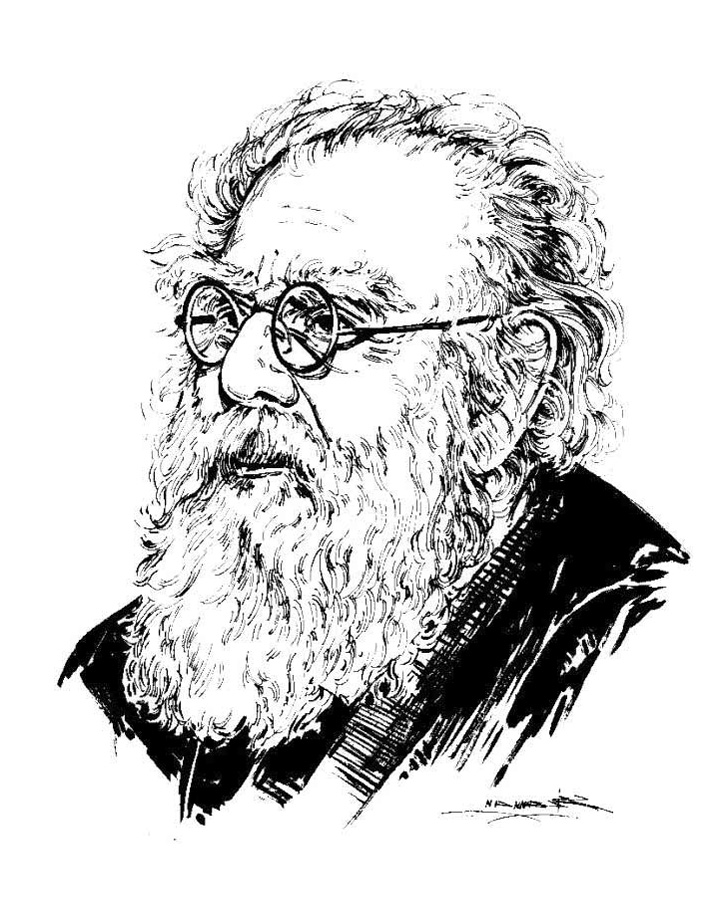
பெரியார் பல்கலைக்கழகம்
அரசு பல்கலைக்கழகம், சேலம்.
PERIYAR UNIVERSITY
State University - NAAC 'A++' Grade - NIRF Rank 94
State Public University Rank 40 - SDG Institutions Rank Band: 11-50
Salem - 636 011, Tamil Nadu, India.

Best Practice -1
1. Title of the Practice Get, Set, Go Green
2. Objective of the Practice:
Periyar University with its lush green campus aims to maintain a clean and green learning environment. The institution’s green consciousness marching towards a carbon neutral society emphasises the same in its wards. The students and teaching fraternity take equal initiatives in promoting environmental awareness within and outside the campus through outreach programmes. The main objectives are the maintenance of green and clean campus and the promotion of environmental awareness through outreach and extension programmes.
3. The Context:
Periyar University is located at the Salem Bengaluru highway, 8 kms from the city. The University covers a land area of 38.64 ha (95.48 acres), with 35 buildings accommodating all the academic departments, administrative offices, residential hostels, guest houses and utility centres. The buildings are distantly apart from each other covering the entire campus area providing appreciable size of empty land towards establishing and maintaining a green and clean campus. Absence of intensive residential and industrial establishments nearby the campus adds to the natural green ambience. Further, the governing body and the administrative authorities of the University constantly encourage teaching and student community to actively participate in environmental promotional activities. Awareness programmes, outreach and extension activities to the public are accomplished through the academic departments, various centres and NSS. Vision of gearing up for a green campus is embedded in the thoughts and values of the academic fraternity of Periyar University.
4. The Practice:
Periyar University strives to gear up for the green campus through green initiatives, maintenance of plastic free campus, optimised waste management system, energy use efficiency, adopting ‘Reduce Reuse Recycle’ principle and e-governance for waste minimisation, involving Swachh Bharat Abhiyan activities. The same is taken up by the academic departments and NSS of Periyar University.
Green campus initiatives were undertaken on a large scale in the past five years through 8 tree plantation drives resulting in the planting of approximately 200 saplings during various commemorative days, events and programmes. Under the above initiative, ‘One student One Tree Campaign’ was started on 13.09.2017 and 50,000 saplings were planted. As a novel venture, Miyawaki plantation drive was initiated during February 2020, in an area of 464.5 sq. m. Uprooted mature trees due to heavy rains are constantly replaced by tree saplings. Maintenance and irrigation of landscape in the campus are consistently carried out by the campus maintenance wing.
Ban on disposable plastic use was implemented within the campus and periodical plastic cleaning drives within the campus were undertaken by the University NSS students. The liquid wastes generated at the hostels and guest houses were treated at the sewage treatment plant established at the campus with a capacity of 120 kiloliter per day. The treated water is efficiently used for irrigating the plants. Twenty four rainwater harvesting structures and four runoff water harvesting structures were constructed for ground water recharge. A mini biogas plant with a dimension of 2.10 x 2.10 x 2.0 m is established for degrading the food wastes generated at the hostels. Litter and miscellaneous wastes generated were disposed off in the two landfills without any nuisance to the environment. 14,780 LED bulbs were replaced / newly installed and two solar plants of 302 kW capacity were installed towards energy conservation. Every year, large quantities of answer sheets and stationery items were auctioned to Tamil Nadu Newsprint and Papers Limited (TNPL), Karur. All electronic equipment were purchased with buyback policy in order to reduce e-waste generation. Photocopier and Printers were periodically overhauled for reuse through equipment maintenance section. NSS regularly organised cleaning camps in nearby villages and conducted awareness programmes to the public through rallies, and volunteers for environment promotional activities. From the month of October 2018, under Swachh Bharat scheme, each University department undertook an extension activity beyond the campus to promote awareness on clean environment.
5. Evidence of Success:
The existing practice has resulted in increased number of matured trees from 380 to 711 in last five years. Miyawaki forest plantation has turned 232.25 sq. m of barren land into a dense green cover with 55 varieties of tree saplings numbering 1,400 trees. Through the sewage treatment plant, about 80,000 litres of wastewater per day is effectively treated and used for irrigating the plants within the campus. Drip irrigation installed, helps minimising the water usage of about 6,000 litres per day. The biogas plant with two domestic burners is used for 4 hours of cooking in the Men’s hostel. LED bulbs had accounted for saving 17,030 watts of electricity. The solar panel with 300 kW capacity will reduce electricity charges by 80% in the future. Rain water harvesting structures collect all the rainwater from the buildings and the runoff water at the catchment sites within the campus. Computers purchased have LED screens for saving electricity. The auctions of old answer sheets and other goods generated a revenue of Rs.109.87 lakhs. New buildings constructed between 2015 and 2020 are well ventilated reducing electricity usage. All the environmental promotional activities of the University have been well recognised by the stakeholders of the society.
6. Problems Encountered:
Successful implementation of this practice is constrained due to lack of trained domestic workers towards categorisation of solid wastes and its management. Society and stakeholders need to join hands with the University to promote environmental awareness. Students participation in environmental, extension and outreach programmes within and outside the University needs to be strongly encouraged.
Best Practice - 2
1. Title of the Practice: Campus to Society through Collaboration
2. Objectives of the Practice:
The academic and research credentials of Periyar University focus towards industrial collaborations for the societal upliftment of the community within the University jurisdiction. The main objectives are to potentially utilise the results of the academic research that are useful to the society, to translate further to the local industries for the product development and societal services as well as to promote application oriented research outcomes.
3. The Context:
Periyar University jurisdiction includes four districts namely, Salem, Namakkal, Krishnagiri and Dharmapuri. The research and outreach activities carried out at Periyar University were intended to cater to the needs of the rural population. It also relevantly addresses the societal issues and provides technical expertise to the emerging industrial needs through research collaborations and Memorandum of Understanding. Health related research conducted at the University has good potential for larger scale of applications. Under this context, the research and extension activities of Periyar University have attained substantial and sustained growth in the last five years.
4. The Practice:
Departments of Microbiology, Food Science and Nutrition, Biotechnology, Environmental Science and Geology are engaged in research addressing the issues, such as, soil remediation, waste management, food adulteration, lack of product manufacturing protocols for sago, vector borne diseases and mining effects as faced by the community in the neighbourhood. Health related research studies carried out at the departments of Microbiology, Biochemistry, Computer Science, Nutrition and Dietetics, Physics, Chemistry and Zoology have resulted in the product development for bone and dental implants, food product formulations, value added product synthesis, diabetic control mechanisms, medical image processing, cancer research and synthesis of anti-bacterial and anti-viral drug like compounds. Periyar University Business Incubation Centre (BIC@PU) serves as a liaison centre for the development of young entrepreneurs. Department of Computer Science has been sanctioned a project worth Rs. 266 lakh for a period of three years by the Ministry of Rural Development, Government of India under Deen Dayal Upadhyaya Grameen Kaushalya Yojana (DDU-GKY) Scheme to impart skill training in Artificial intelligence, Data Science and Software Development to the rural youth in the districts under University jurisdiction. Funded by UGC, under National Skills Qualification Framework (NSQF), B. Voc programmes are offered in the departments of Food Science and Nutrition and Textiles and Apparel Design to impart skill based education at the undergraduate level. Village adoption scheme was undertaken by the department of Sociology to uplift the community and to address their societal issues. In view of COVID-19 pandemic in the year 2020, the University has significantly contributed by publishing 11 research articles and 6 newspaper articles, relevant to COVID-19, gaining wide publicity among the society. The department of Chemistry prepared sanitisers that were freely distributed to the University workers. The faculty of the department of Psychology offered free counselling to the public to overcome the mental stress due to COVID-19 lockdown.COVID19 Contribution
5. Evidence of Success:
Awareness events focussed on cancer, dengue fever and preserving traditional rice varieties to mention a few, highlight the societal concern of the University. Research grants received from various governmental agencies to the tune of Rs.3,146.5 lakh and the 1,703 research publications in last five years stand testimony to the University’s commitment towards serving the society. Sixteen patents were published in the last five years as an outcome of the intensive research works. A total of 65 relevant MoUs were signed for product development and technology transfer. Twelve entrepreneurs have initiated their startup ventures through BIC@PU. Under DDU-GKY Project, 350 rural students are to be admitted for skill training. Under the B.Voc Programmes, three batches of students have passed out in both the departments of Food Science and Nutrition and Textile and Apparel Design, with good placement records. Department of Sociology in its adopted village Sangeethapatti has offered services including computer literacy to school children, health awareness and medical camps to adult people. The awareness and helping hands rendered during COVID-19 pandemic have been widely recognised by the general public, district administration, and by the Public Health department of State Government.
6. Problems Encountered:
Acceptance and implementation of research initiatives by the University to the local society is a challenge faced by the research community of Periyar University. The general hesitancy of students to develop themselves as young entrepreneurs due to their ignorance on policies and startup opportunities make the task more complex. Special canvassing needs to be done so as to make the students boldly take up the initiative to become young entrepreneurs. Coordination with media is needed for popularising the schemes, research outcomes and collaborations for large scale impact on the society.
Additional Informations
© Periyar University - 2022. All Rights Reserved.
Developed & Maintaining by Computer Centre
